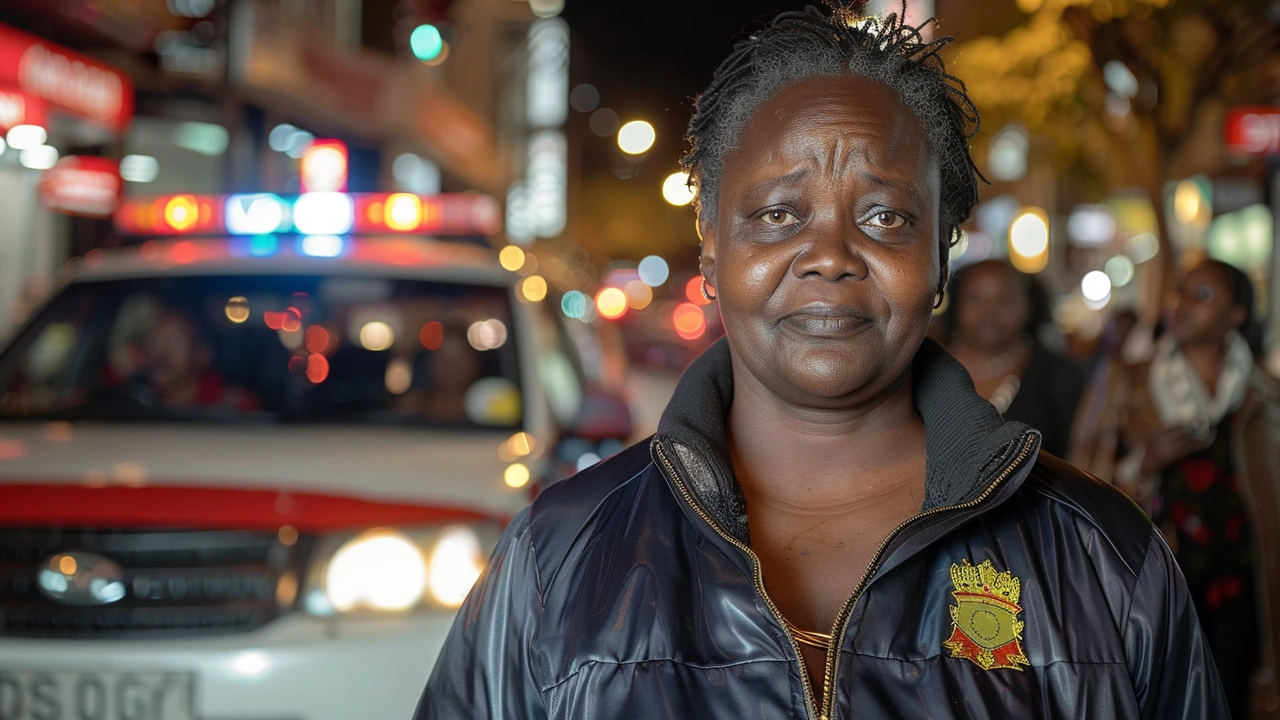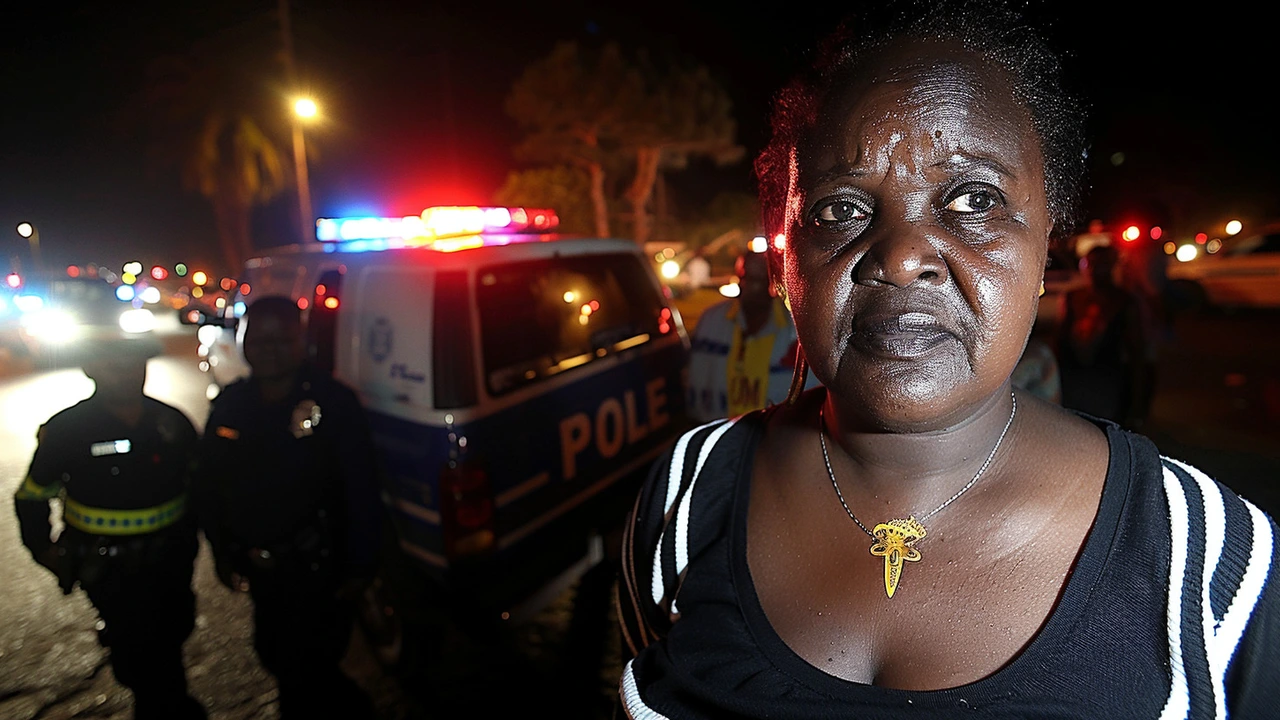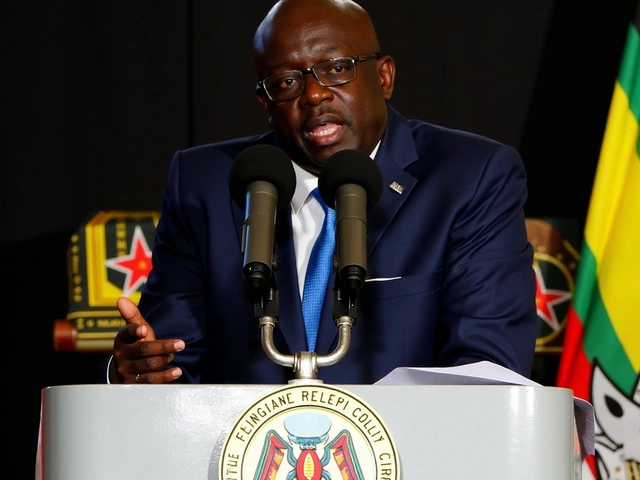The Heart-Wrenching Moment of Revelation
Jillian Munyau's world came crashing down on June 20, in a shattering phone call that no mother should ever have to receive. It was a typical afternoon in Nairobi when Jillian learned the devastating news that her beloved son, Rex Masai, had been shot and killed during protests in Nairobi's central business district (CBD). The phone call came from Rex's friend, who had been by his side during the chaotic and tragic events.
According to the friend, the fateful incident occurred near the National Archives, a bustling area often symbolizing Nairobi's dynamic and sometimes tumultuous heart. The protesters, including Rex, had found themselves running from a cloud of tear gas deployed by law enforcement to disperse the crowds. Amid the confusion and panic, a bullet fired by the police struck Rex.

The Agonizing Details Unfold
The friend’s voice trembled as he recounted how he had tried frantically to get help for Rex. Each plea to the nearby police officers was met with stony faces and cold shoulders. The cries for assistance fell on deaf ears as Rex lay bleeding on the ground, his life slipping away with each passing moment. Desperation painted the scene vividly—the friend, caught between hope and despair, watched helplessly as Rex’s condition deteriorated.
Still in shock, Jillian raced to a clinic in Nairobi’s CBD, clinging to fragile strands of hope. However, upon arrival, it turned swiftly into despair. She found Rex’s lifeless body, the clinic’s sterile environment doing nothing to mask the stark and painful reality. The drive, the clinic, the faces—all blurred into a single moment of heartbreak.
Aftermath and Search for Accountability
In the aftermath, Rex's body was transferred to the city mortuary, and the somber process of a post-mortem commenced. This tragic loss sparked an urgent need for answers and accountability, capturing the attention of the Independent Policing Oversight Authority (IPOA). The authority sprang into action, contacting the Masai family as they launched a thorough investigation.
IPOA Chairperson Anne Makori publicly emphasized the agency’s commitment to ensuring that all police operations affecting the public are subject to rigorous scrutiny. Her statements highlight a long-standing issue of police conduct during public events, emphasizing that the institution would leave no stone unturned in the quest for justice for Rex and his grieving family.
For Jillian, the days ahead are a blur of grief and disbelief. Her son, once a vibrant part of her life, had been taken away in the most brutal and senseless manner. Each recollection of the day’s events is a knife to her heart, a source of unending sorrow and deep-seated anger.
Symbol of Larger Issues
Rex Masai's untimely death does not merely constitute a personal tragedy; it is emblematic of larger systemic issues within the Kenyan policing framework. Over the years, instances of alleged police brutality have slowly eroded public trust, creating a chasm between citizens and law enforcement agencies. Rex's story amplifies the ongoing conversation about police reform and the protection of human rights during civic demonstrations.
The tragic incident serves as an urgent call to reassess the protocols and attitudes of those tasked with maintaining public order. The tear gas, the bullets, the unresponsive officers—all paint a bleak picture of a system that seems to prioritize suppression over protection.
Rising Voices and Advocacy
In the face of her loss, Jillian Munyau's voice joins a chorus of others who have experienced similar tragedies. Her narrative becomes more than a recounting of events; it transforms into a powerful advocacy for change. Groups dedicated to human rights and police reforms are leveraging stories like Rex's to press for meaningful and lasting changes in the system.
Furthermore, the IPOA’s investigation is a beacon of hope that Rex’s death will not be in vain. The authority's commitment to investigating such incidents fuels the possibility of a future where accountability is not just a word but a tangible reality. As the investigation unfolds, it remains critical to hold onto the threads of hope that justice will be served, and those responsible will face the weight of their actions.
Moving Forward
As Nairobi continues to pulse with its characteristic vibrancy and tension, the memory of Rex Masai serves as a poignant reminder of the cost of unresolved systemic issues. Streets filled with life and noise now hold a layer of sorrow, as a mother mourns her lost son and a city grapples with the repercussions.
Jillian's story underscores the necessity of reform, the need for compassion, and humanity in policing. Her pain becomes an advocate for others, a rallying cry for policy changes that can safeguard the lives of protestors and ordinary citizens alike. As awareness and advocacy grow, there lies a shared hope that Nairobi, and all of Kenya, may see a future where such heart-wrenching events become relics of the past.







rin amr
June 21, 2024 AT 17:59One must recognize that the tragedy transcends mere sentimentality; it exemplifies a failure of governance that has persisted under the veneer of progress. The systemic laxity within law‑enforcement structures cannot be excused by isolated incidents. A comprehensive audit of operational protocols is indispensable, lest we continue to condemn families to perpetual anguish. Moreover, the public discourse should elevate accountability to a constitutional imperative. In this light, the discourse surrounding Rex Masai's death demands scholarly rigor rather than emotive outpouring.
Jai Bhole
July 1, 2024 AT 11:59Yo, our African brethren are getting the raw deal while they choke on their own smoke. It’s a classic case of state power laced with cheap ammo-no wonder the streets bleed. You cant expect justice when the system’s built on lies and the cops are just hired thugs. Thats why we need to stand up, scream louder, and remind them that a nation’s soul can’t be bought with bullets.
rama cs
July 11, 2024 AT 05:59The ontological dissonance observed in the sociopolitical matrix-wherein state-sanctioned coercion is aesthetically cloaked as public order-necessitates a dialectical interrogation. The phenomenological impact upon collective consciousness manifests as a cumulative erosion of trust, a metric often quantified in civil compliance indices. Consequently, the martyrdom of Rex Masai serves as a praxis of systemic disenfranchisement, corroborating extant theoretical frameworks on hegemonic violence. Such a tableau warrants a recalibration of jurisprudential doctrines to integrate restorative paradigms.
Monika Kühn
July 20, 2024 AT 23:59Ah, the sweet irony of policing a protest while simultaneously orchestrating a tragedy-truly a masterclass in bureaucratic choreography. One might even argue that the bullet was simply a misplaced punctuation mark in the script of “law and order.”
Surya Prakash
July 30, 2024 AT 17:59It is morally unacceptable that a young life was extinguished in the name of public safety. The responsibility lies not only with the officers present but also with the institutions that permit such reckless use of force. While emotions run high, the call for measured reform remains paramount. We must demand transparent investigations and hold accountable those who betray the public trust.
Sandeep KNS
August 9, 2024 AT 11:59In accordance with established protocol, one must formally acknowledge the deplorable lapse in operational conduct exhibited by the aforementioned law enforcement entities. It is, admittedly, an egregious deviation from the statutes that govern the legitimate exercise of authority. Nevertheless, one might proffer that the incident, in its tragic entirety, serves as a quintessential illustration of why procedural rigor is indispensable. The commentary herein, while ostensibly earnest, subtly underscores the paradox inherent in a system that purports to safeguard whilst simultaneously imperiling.
Mayur Sutar
August 19, 2024 AT 05:59My heart aches for the family and for all who have felt the chill of such loss. The streets of Nairobi pulse with a rhythm that now carries a note of sorrow. It reminds us that every protest is a human story, not just a headline. When tear gas fills the air, it does more than obscure vision, it clouds the conscience of a city. A bullet that finds its mark in a young man is a wound that spreads beyond the flesh. Communities gather, not to celebrate violence but to mourn and to demand change. The weight of grief can become a catalyst for solidarity among strangers. We have seen this pattern repeat, and each recurrence teaches us that silence is complicity. In moments like these, empathy must translate into action, not just words. The call for accountability should be louder than the sirens that once accompanied the chaos. Let us honor Rex’s memory by pressing for reforms that protect the right to assemble without fear. Policy makers must rewrite the rules that enable such tragedies. Citizens must refuse to accept the status quo when it is built on blood. The story of loss becomes a beacon for future generations if we choose to learn. May the collective resolve of the people turn this sorrow into a lasting pledge for justice.
Nancy Ortiz
August 28, 2024 AT 23:59Well, that’s a real feel‑good headline, isn’t it?